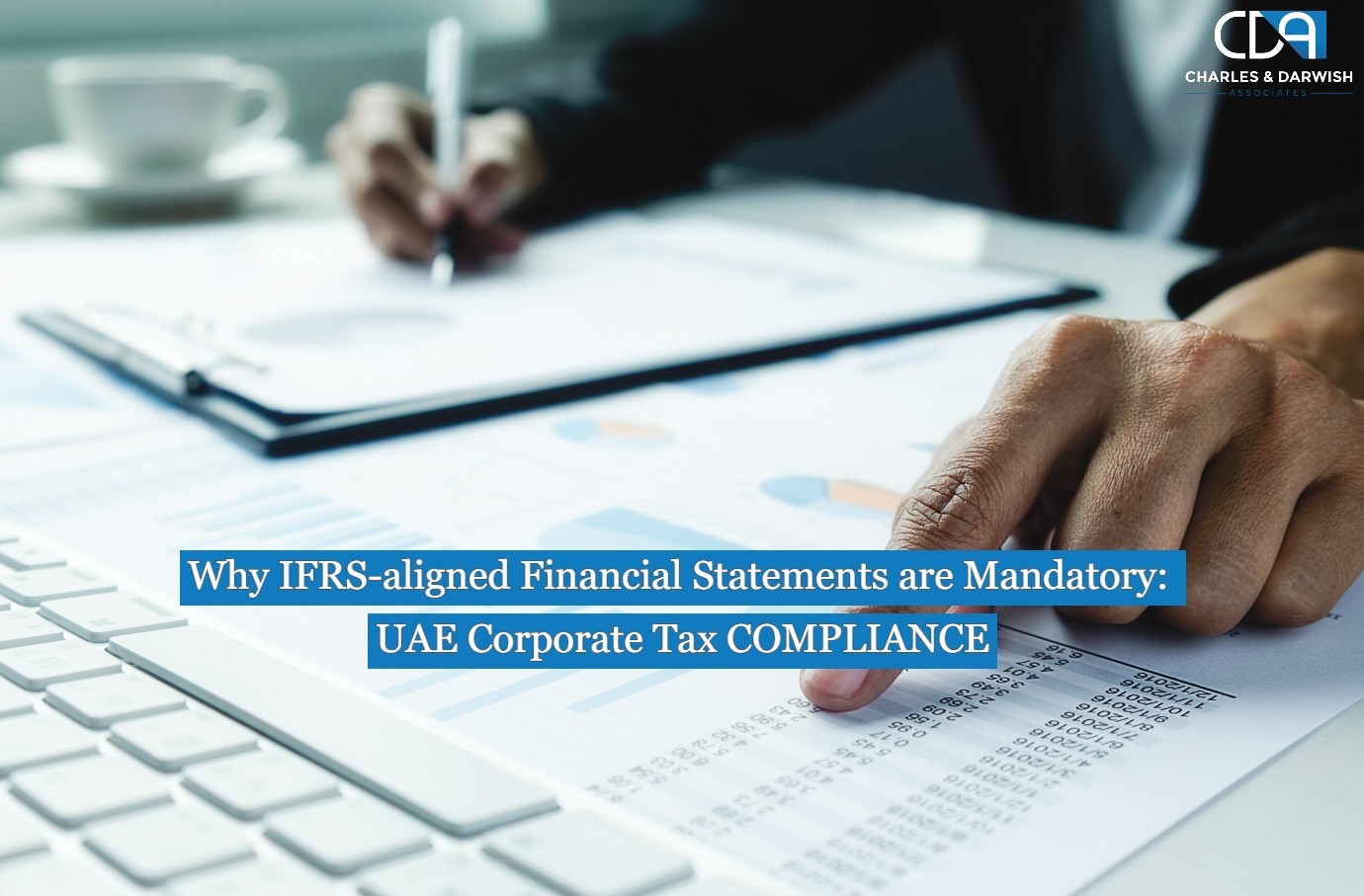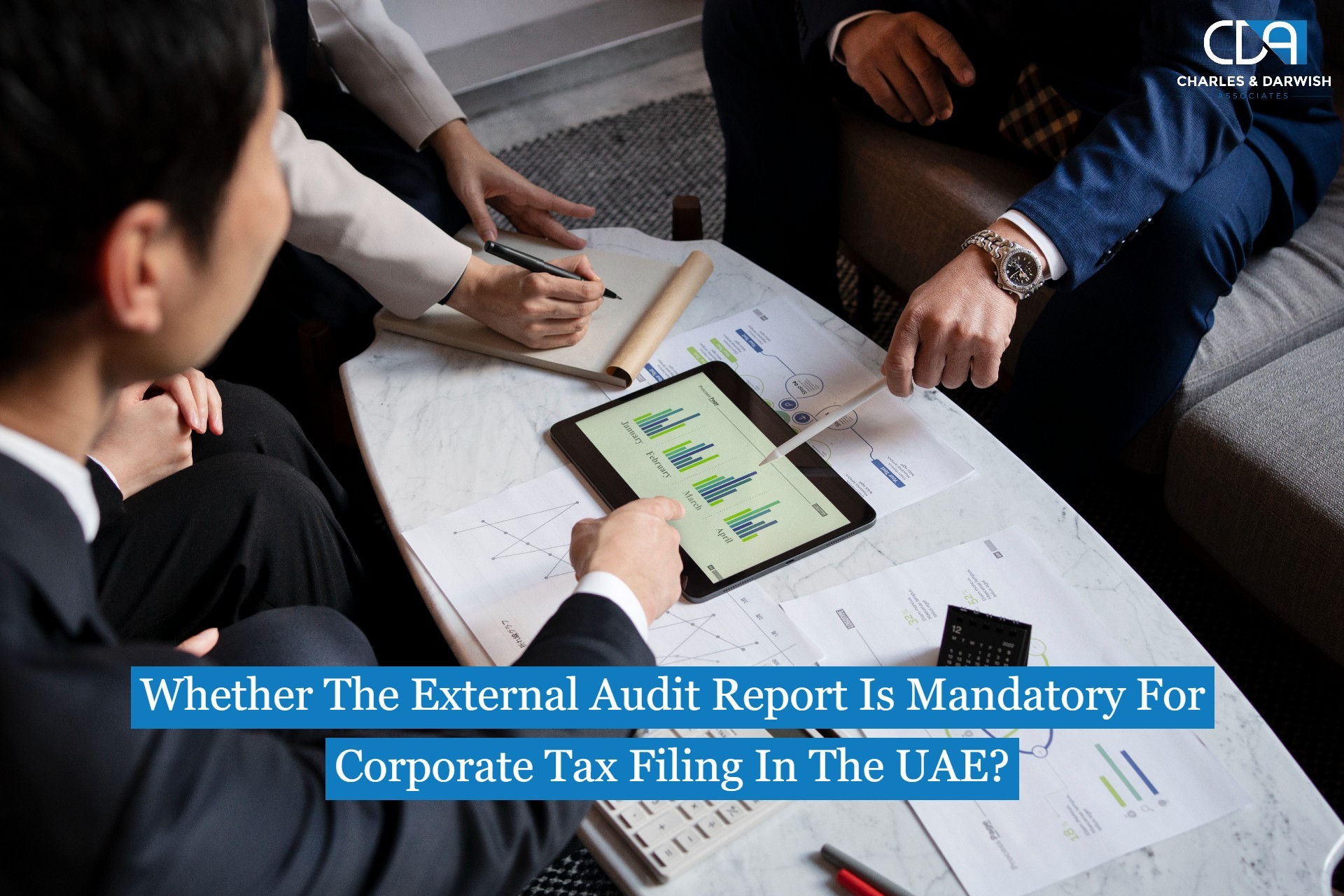What is Corporate Tax in UAE
According to the Ministry of Finance, corporate tax is a form of direct tax levied on the net income or profit of a corporation and other businesses; sometimes it is also referred to as corporate Income Tax or business profit tax in other jurisdictions.
The Ministry of Finance announced on January 31st that the federal corporate tax will be implemented from June 1st, 2023.
In the United Arab Emirates corporate tax is applied as follows
- Zero rates on Net profit up to AED 3,75,000.
- 9% Rate on Net profit above AED 3,75,000.
- Different types of tax slabs for multinational companies following Pillar two of OECD base erosion and profit shifting.
The net profit of a business is the amount reported in the financial statements prepared following the internationally accepted accounting standards (The taxable income will be the net profit of the company, after making certain adjustments to be specified under UAE CT Law).
The Cooperate income tax is calculated at 9 percent on the net income in the financial statement, with the help of an example we can understand how Cooperate Income Tax is calculated
the net profit is AED 4,00,000; cooperate tax will be AED2,250
Net profit up to AED 375,000 – Zero
Net profit AED 375,000 – AED400,000 – 2,250 (25000*9%)
Cooperate tax is AED 0 + AED 2,250 = AED 2,250
Impacts of Corporate taxation on business entity;
Business entities are subjected to cooperate income tax, where their operations fall in the mainland of the United Arab Emirates which has been stated above. Individuals’ earnings income in their personal capacity as long as their generating activity does not require a commercial license is not taxable. The businesses which are been registered under the free zone areas should comply with all the requirements which are regulated by each free zone area. A business established in Freezone will be required to register and file a Corporate Tax return, but they will get a Corporate Tax incentive.
Some of the impacts of the corporate taxation on the business entity are as follows;
- Business operation
Corporate tax is levied on the profit generated by the business entity, Hence the shareholders are majorly affected as the profit after tax will be reduced. This can also affect the business operations as corporate tax makes it difficult for the investors to make expensive or heavy Investments where a huge profit can be gained if there is a big breakthrough. The corporate tax also makes the management decide whether to expand or sustain the same amount of the business, by further not opening a workstation for cost efficiency
With the introduction of Corporate Income Tax businesses would expect to sell less so that there will be a reduction in the level of their investments. The tax would adversely affect the working capital of the company as it is a short-term liability in the viewpoint of the business entity hence the business should analyze and bridge the gap.
Companies are liable to be registered for the corporate income tax and they would be required to pay 9 percent on their taxable profit if their threshold is above AED 3,75,000. We can see that as corporate income tax is a short-term liability it would adversely affect their working capital hence while preparing for the budget a year the company should analyze and understand the effects of corporate income tax on the operations of the business entity and should plan accordingly.
2. Structure of the business
Each business structure attracts certain different types of tax liabilities, for example for a sole proprietorship firm, the proprietor is solely liable for any business losses and must pay out of hand on all the earnings, when it comes to a partnership firm the liability is shared among the partners according to their ratio of the capital brought in.
Here are some of the measures taken to reduce the tax
- Opting the tax-efficient Assets.
- Investments in plants and machinery.
- By claiming all the expenses incurred by the business entity.
- By introducing various schemes for the employees in the firm as incentives.
- Stock option.
How are Cooperate Income Tax Going to Affect Free zone area business
Corporate tax is a form of direct tax levied on the net income or profit of a corporation and other businesses. Free zone areas are those economic zones Where an Operating license has been issued to operate a business operation which Provides an opportunity for financial and tax exclusions.
Free zone companies will be in consideration of the new tax which has been implemented by the Ministry of Finance of the United Arab Emirates, a 9 percent tax can be applied if their operations are conducted in the mainland which was stated earlier if their Net profit is above AED 3,75,000 a 9 percent would be charged on the taxable profit.
An FZE or FZC is a limited liability company governed by the rules and regulations of the Free Zone in which it is established. The provisions of the UAE Commercial Companies Law (CCL) do not apply. To begin the process of setting up a Free Zone Company, it will require the following documentation and due diligence from all shareholders/directors of the proposed new company:
- Certified Passport Copy and UAE Visa/UAE entry stamp (if non-resident)
- 2 x Proofs of Address (dated within 3 months)
- Bank or Professional Reference Letter
- Curriculum Vitae (summary of professional history)
- Company Application Form
The UAE offers investors more than 40 multidisciplinary free zones, in which expatriates and foreign investors can have full ownership of companies. These zones are characterized by their highly efficient infrastructure and distinct services that facilitate smooth workflows, saving businesses considerable time and effort.
Many free zones located in the United Arab Emirates have been offered various benefits such as opting out of tax for 50 years of period. The free zone areas are having different treatments in accordance with the designated free zones, for the treatment of VAT and various other payments and procedures. Free zone companies that come under the multinational group can be subjected to the global minimum taxation under the Pillar two of OECD base erosion and profit shifting.
Free zone companies also benefited from the exemptions of import and export duties due to the double taxation agreements which have been conducted by the United Arab Emirates to promote international trade.
In case the free zone companies have business operations on the mainland, it has to abide by the rules and regulations which have been published by the ministry of finance of the United Arab Emirates, thus cooperate tax will be affected to those companies with mainland operations. Corporate income tax indirectly bears the taxes that are borne by the business activities, this includes the capital gains and business-related interests and taxes on the dividend to the shareholders.
Hence, we can conclude that Corporate income tax does not have much effect on the free zone business entity as it follows special regimes which have been set out under the legal framework of relevant free zone authorities. But cooperate income tax can affect the multinational business entities which are located in the free zone areas, and also as well as the business entities which has their operations outside the free zone area; mainland which will be subjected to the 9 percent of the taxable profit if their Net profit is above AED 3,75,000.

Mark Thompson
Full-stack Developer, Blogger, and Tech Enthusiast.
Mark specializes in digital marketing, SEO, and content strategy.













